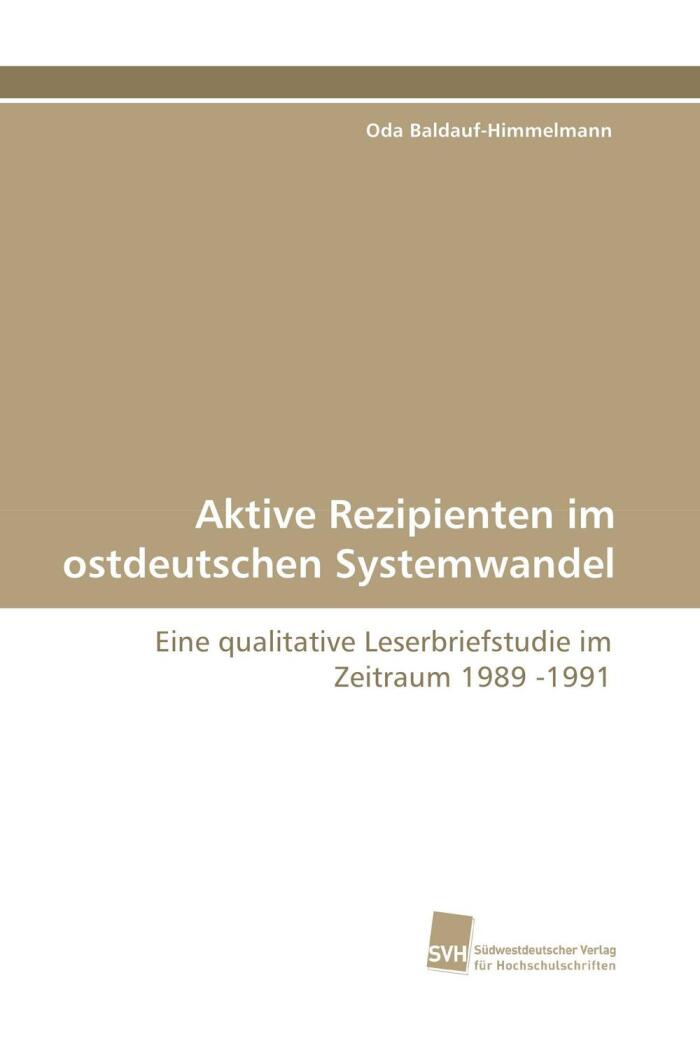
Aktive Rezipienten im ostdeutschen Systemwandel: Eine qualitative Leserbriefstudie im Zeitraum 1989 -1991
によって
Oda Baldauf-Himmelmann
まだ評価がありません
Action & Adventure
形式
ペーパーバック
ページ数
352
言語
ドイツ語
公開されました
Oct 12, 2009
出版社
Suedwestdeutscher Verlag fuer Hochschulschriften
版
1
ISBN-10
3838101049
ISBN-13
9783838101040
説明
Oda Baldauf-Himmelmann presents a comprehensive examination of the transformative period in East Germany from 1989 to 1991, focusing on the active engagement of readers during the profound societal change known as the Wende. The book delves into qualitative analyses of reader letters, providing unique insights into the thoughts, emotions, and reactions of individuals navigating this pivotal moment in history.
Through meticulous research, Baldauf-Himmelmann captures the voices of those who experienced the upheaval first-hand, revealing how their perceptions evolved in response to the rapidly shifting political landscape. The letters function not only as personal reflections but also as a collective memory of a society in transition, highlighting the struggles and aspirations of citizens adjusting to newfound freedoms after years of authoritarian rule.
By examining these letters, the author uncovers themes of hope, uncertainty, and resilience, offering a nuanced understanding of the complex dynamics at play during the post-communist transformation. The study also sheds light on how individuals became active participants in redefining their roles within a reorganized social and political framework.
This exploration does not merely recount historical events; it invites readers to consider the impact of collective consciousness on individual identity in times of upheaval. Baldauf-Himmelmann's work stands as a significant contribution to the discourse surrounding East Germany's transition, enriching the narrative of a society striving to redefine itself amidst change.
Through meticulous research, Baldauf-Himmelmann captures the voices of those who experienced the upheaval first-hand, revealing how their perceptions evolved in response to the rapidly shifting political landscape. The letters function not only as personal reflections but also as a collective memory of a society in transition, highlighting the struggles and aspirations of citizens adjusting to newfound freedoms after years of authoritarian rule.
By examining these letters, the author uncovers themes of hope, uncertainty, and resilience, offering a nuanced understanding of the complex dynamics at play during the post-communist transformation. The study also sheds light on how individuals became active participants in redefining their roles within a reorganized social and political framework.
This exploration does not merely recount historical events; it invites readers to consider the impact of collective consciousness on individual identity in times of upheaval. Baldauf-Himmelmann's work stands as a significant contribution to the discourse surrounding East Germany's transition, enriching the narrative of a society striving to redefine itself amidst change.